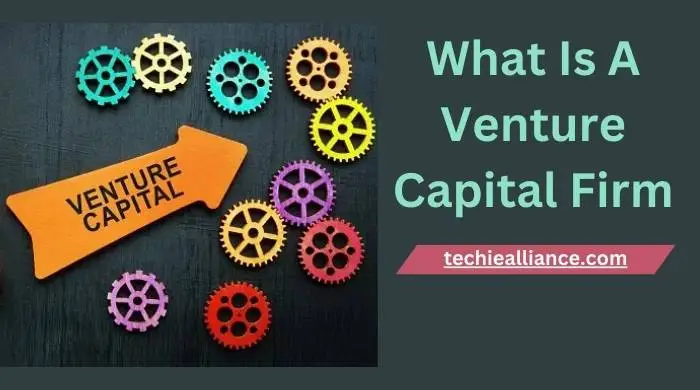What Is A Venture Capital Firm (VC) is a form of private equity and a type of financing for startup companies and small businesses with long-term growth potential. Venture capital generally comes from investors, investment banks, and financial institutions. Venture capital can also be provided as technical or managerial expertise.
What Is A Venture Capital Firm
Understanding Venture Capital (VC)
Venture capital (VC) invests startups and small enterprises that investors believe have enormous expansion potential. Financing typically takes the form of private equity (PE). A restricted group of investors can acquire ownership holdings in independent limited partnerships (LPs). While venture capital often focuses on startups, private equity (PE) supports existing enterprises seeking an infusion of equity. Venture Capital (VC) is an essential source of finance, especially for start-ups that do not have access to bank loans, capital markets, or other forms of debt.One.
Often recognized as the "Father of Venture Capital," Georges Doriot is a professor at Harvard Business School. When he founded the American Research and Development Corporation in 1946, he managed to raise $3.58 million to help companies that were commercializing technologies developed during the war.23 23The company's initial investment was in a firm that sought to develop X-ray cancer treatment. The $1.8 million Doriot invested increased to $200,000 when the company went public in 1955.three
VC began to be linked to the growth of Silicon Valley and West Coast tech companies. By 1992, enterprises on the West Coast received 48% of all investment money, while businesses on the Northeast Coast received only 20%.4'In 2022, companies in the West Coast accounted for over 37% of all transactions, while the Mid-Atlantic region saw little less than 24% of all agreements.
Types of Venture Capital
- Pre-seed is the early stage of business development when entrepreneurs try to turn an idea into a detailed business strategy. They can register for a business accelerator, which will provide early funding and mentorship.
- A startup seeking seed capital looks to launch its first product at this point. Due of the lack of revenue streams, the company will require venture capitalists to fund all of its operations.
- After a product is developed, a business has to spend more money to boost sales and manufacturing before it can begin to support itself. After that, the firm will need one or more investment rounds, which are typically referred to as Series A, Series B, etc. progressively.
How to Secure VC Funding
- A business plan must be submitted to a venture capital firm or an individual investor by any company looking to raise funds. The company or investor will perform due diligence, which entails a thorough examination of the business concept, goods, management, and operating history of the organization.
- Following the completion of due diligence, the company or investor will guarantee a capital investment in exchange for company equity. Even though capital is often provided in phases, it is possible for all of the funds to be provided at once. Subsequently, the company or investor takes an active role in the firm it is supporting, monitoring and directing its growth prior to providing more funding.
- A merger, acquisition, or initial public offering (IPO) is often how the investor exits the company four to six years after making their first investment.
Advantages and Disadvantages of Venture Capital
Startups that don't have enough cash flow to take on debt funding might get it through venture capital. Companies receive the capital required to begin operations, therefore this arrangement may benefit them as well as investors who purchase stock in exceptional companies. Venture capitalists (VCs) may help them find talent and advisors by offering networking events and mentorship. Strong VC backing is beneficial for increasing investments.
However, a business that accepts venture capital assistance can give up creative control over its course for the future. Venture capital investors could have expectations of the company's management and seek a sizable share of the company's equity. Since many VCs are only interested in quick, high-return rewards, they may advise the company to make a quick departure.

